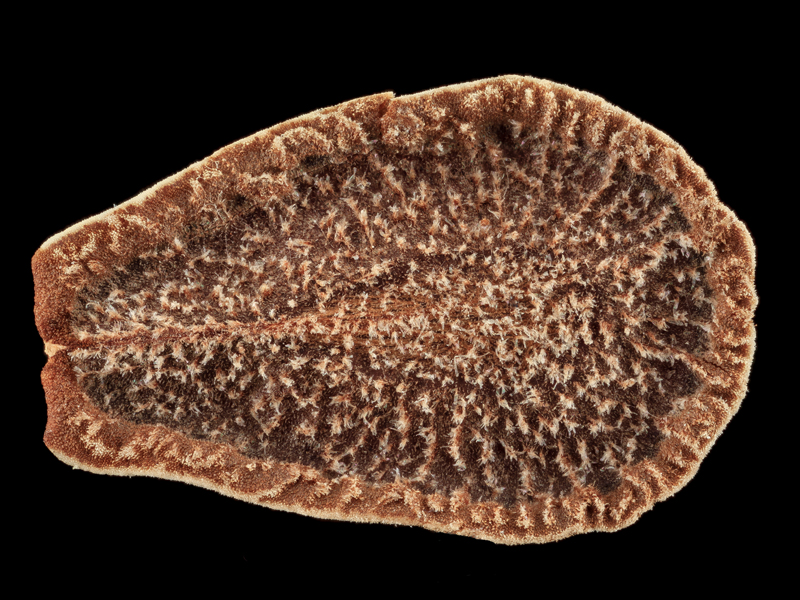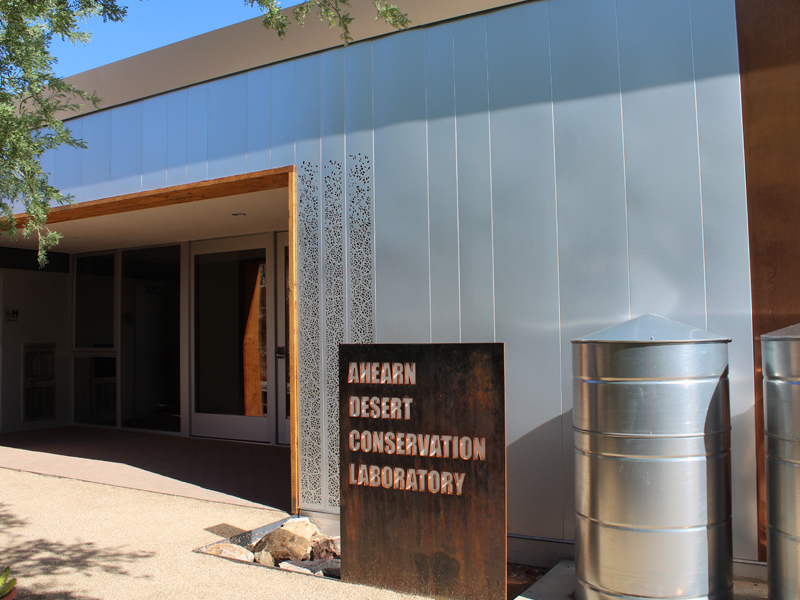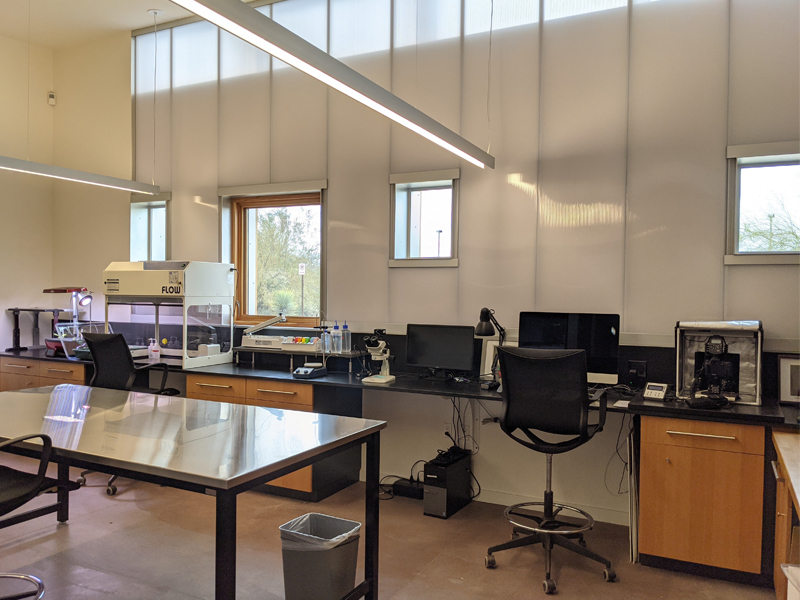This article ran in the Winter 2019 Sonoran Quarterly issue
Those infatuated with the Sonoran Desert recall the allure of towering saguaros, the herbal smell of creosote and verdant trunks of palo verde trees. The unfortunate truth is that this fragile biodiversity is enduring various threats from humans to climate change, and the landscape of the Sonoran Desert could look very different should any of these plants go extinct.
Now for the good news: Desert Botanical Garden’s newest scientific facility is one giant step forward to protect desert plants of the Sonoran Desert, as well as from around the world. Thanks to the generous donation of Susan and Bill Ahearn, the doors opened this summer to the Ahearn Desert Conservation Laboratory (DCL), a milestone on the path to the Garden becoming a premier desert research facility.
The Garden began collecting and maintaining seeds of rare, threatened, and endangered plant species in the early 80s as part of a national network of botanical gardens that founded the Center for Plant Conservation. A seed vault was con-structed to house the seed collection. Over time though, that structure’s integrity deteriorated, and it was dismantled in 2015. The seeds were placed in a new freezer that was housed in the Garden’s molecular lab.
Susan Ahearn has been a Volunteer in the Garden since 1988, and she saw firsthand the limitations of the previous space, having worked much of her 16,000 volunteer hours assisting with conservation, the herbarium and field work. Susan and her husband Bill generously offered to fully fund the DCL, moving forward one of the most advanced seed bank labs at a botanical garden and the only one specializing in Sonoran Desert plants.
So how have Garden scientists begun utilizing the new seed bank? Steve Blackwell, conservation collections manager, and other Garden scientists have not wasted a minute putting its state-of-the-art technology to work for the protection of desert plant seeds. Blackwell describes the seed collection as a “backstop to extinction”—an insurance policy to protect and preserve desert seeds. As populations of species dwindle, the Garden can use stored seed in restoration projects, maintaining precious desert habitats around the world. The new lab is instrumental in work that the Garden is doing to photograph, test, store and germinate desert seeds. One ex-ample of a species that the Garden has managed to help by utilizing the new seed bank is the Pediocactus knowltonii. Sonoran Quarterly readers may recall from the fall issue the work that Garden scientists have done to save this tiny cactus that only grows on a 25-acre patch in New Mexico. Compared to a saguaro fruit, which can produce more than 1,000 seeds, P. knowltonii can only produce between four and 20 seeds in a single fruit. With such small numbers to work with, diversity of the seeds becomes a hurdle in se-curing the fitness of this cactus. The Garden can collect and store these precious seeds and germinate them all within the new DCL to later reintroduce them back into a safe place in the wild.
Blackwell also collaborates with outside organizations in-terested in conserving and learning about seeds. The Garden has agreed to serve as the Southwest regional orchid seed bank for the North American Orchid Conservation Center. Another example is a partnership with the Chiricahua Desert Museum and the Phoenix Zoo, which had the novel idea of testing the viability of seeds eaten by rodents later digested by snakes. Together they are hoping to answer the question if snakes can serve as seed dispersers. This work is all pos-sible thanks to the opening of the DCL and a new germi-nation chamber, which was generously donated by Garden volunteers Steve and Jane Williams.
This is only the start of the work that is being done in the new DCL, and scientists are thrilled to see all the possibilities of the new lab.


